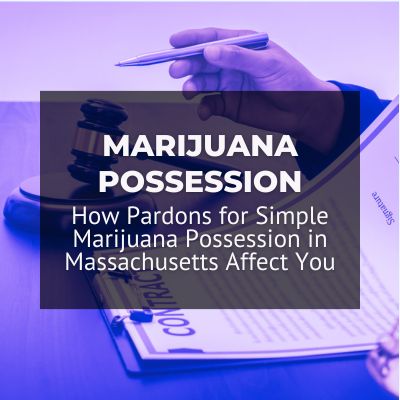May 3, 2024
The Governor of Massachusetts recently pardoned individuals charged with simple marijuana possession. Following this decision, the Governor’s Council unanimously shared their approval and support for pardoning these records. As a result, anyone charged with misdemeanor possession of marijuana before March 13, 2024, will see these crimes immediately cleared from their records.
After receiving approval from the Governor’s Council, Governor Healey announced that Massachusetts had made history and thanked the council for their part in it. In the statement, she announced the following:
“I’m grateful to the Governor’s Council for their due diligence in approving my request to pardon all state misdemeanor marijuana possession convictions. Thousands of Massachusetts residents will now see their records cleared of this charge, which will help lower the barriers they face when seeking housing, education or a job. I want to thank President Biden for his leadership on this issue, and I’m proud that Massachusetts was able to answer his call to action in this momentous way. I hope that other states will follow our lead as we work together to make our communities more fair and equitable.”
According to the Governor, no action is necessary from those charged with possession of marijuana misdemeanors if they received these charges during the covered period. The state will automatically pardon the eligible records. Furthermore, pardoned individuals may request a Certificate of Pardon as proof of the change.
These pardons will also appear in the court records. However, the Massachusetts trial court warned that updating the system could take months. The court explained that there are approximately 70,000 to 100,000 cases to address.
Affected individuals must understand that receiving this pardon does not mean the court removed the charge from their records. Instead, reports will show the charge and include a note about the pardon. Due to this clarification, council members began questioning whether the state should do more. For example, some wondered whether expungement would be a better option.
Those with eligible records should also understand that the pardons apply to simple marijuana possession only. As such, anything in conjunction with simple possession will not count. For example, the pardon does not apply to possession with intent to distribute, and it also does not apply to higher-level charges in marijuana trafficking.
Finally, consumers with eligible records must know that the state will not inform them of the pardon. Anyone wishing to confirm their eligibility or progress should check the court records and conduct a self-background check. A self-check helps confirm whether the pardon appears in qualified cases, informs consumers of errors, and offers them a chance to correct any mistakes.
Run a self background check today to review what employers, landlords, and others see.
